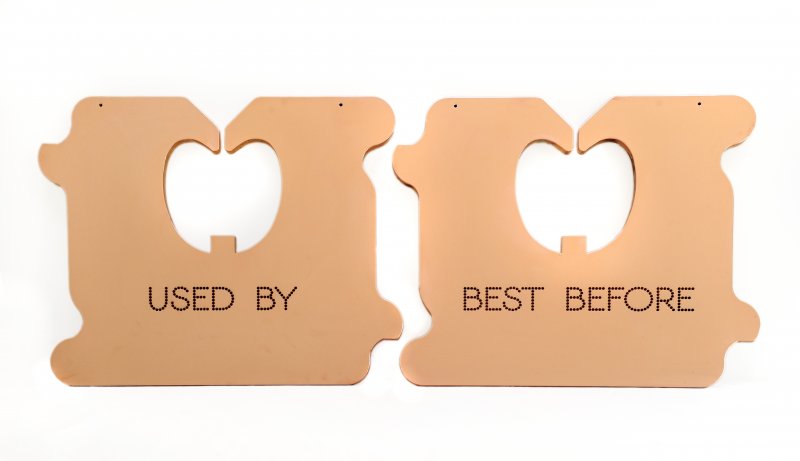Food Expiration dates – what do they mean?
There is a huge amount of confusion when it comes to best before and use by dates, which creates masses of unnecessary food waste.
Want to know how much meaning the dates have? Here is the low down.
Use-by dates
This applies to foods which are highly perishable, so must be eaten within a short time because it will spoil. According to Food Standards Australia, these foods can’t legally be sold after this date because they may pose a health or safety risk.
So people often treat them like an expiry date.
But the trouble is fresh milk typically has a use by date. However the best way to know if your milk is to use your senses, pour it into a cup and smell it, if it smells normal, then it’s fine to use for coffee, cereal or whatever.
I will never understand the concept that milk or any food item is sitting on the shelf saying hey it’s 11:59pm – this is it, get ready to self combust because our time will be done, and we’ll expire as the clock ticks over. It just doesn’t work that way. Milk often is perfectly fine to use, after the date, when stored correctly.
On the other hand if you accidentally leave milk or any perishable out of the fridge, then it may not keep until the date. Especially in summer.
Really we need to use common sense, as while we do need to be sensible about food which has deteriorated, date stamps do cause unnecessary waste.
Best-before dates
A best-before date is used for foods which are more shelf-stable, but they may have lost some quality. Or then again, in many cases maybe not.
Foods which have a best-before dates can legally be sold after that date provided the food is fit for human consumption.
So are these dates really helpful for consumers. Often not really, here’s why
- When dates are applied to foods like baked goods, ready meals and fresh fruit juices fruit it can be a guide
- If you purchase pre-packed lettuce, carrots, apples or other produce, they’re date stamped. But if you purchase it loose there’s no date. So these date often mislead consumers into thinking they can’t eat this produce.
- Foods which have a shelf life of two years or longer do not need to be labelled with a best-before date. Yet most food which this applies to is dated at 2 years from manufacture. Even if it will last much longer.
So these foods with long shelf lives which are date stamped, often get discarded prematurely. So I’m here to tell you that if you throw these foods out, your literally throwing out money and wasting food and ingredients which are perfectly good.
Baked on date
This applies to bread, if its shelf life is less than 7 days.
But if legislation were different, could be helpful for other food types.
Eating food past the date
- Milk – if it smells ok, it is ok. If you’re not sure then cook with it make a sauce or custard. If it’s gone sour, you can use it for pancakes or baked goods.
- Juice – taste it. If it tastes ok, it is ok.
- Cheese – hard cheese is fine unless it’s mouldy. And if there’s mould, I cut it off.
- Bread – its fine unless it’s mouldy. If it’s stale use it as an ingredient. Here are some tips on how to use stale bread.
- Meat – smell it. If it smells ok, it is ok. If it smells funky, then there’s your sign. If don’t think you’ll use meat before it goes off them cook it as this stabilises and extends the life of it. You can also freeze it.
- Produce – fruit and veggies which look are ok, are ok
- Canned food – it’s fine if unopened.
- Salt – ignore the date, it lasts indefinitely.
- Sugar – ignore the date, it lasts indefinitely.
- Vinegar – ignore the date, it lasts indefinitely.
- Water – forget the date, don’t buy it bottled. Seriously it’s a waste of plastic and money.
Best before vs used by dates
Our food date date system is often misleading for the consumer. At a time when food prices are increasing and there are national targets to reduce food waste with the National Food Waste Strategy, there has never been a better time to review it.
In the meantime as a consumer you can counter this by understanding what the dates mean, and disregarding them when inappropriately used.
I’m hoping that the Federal Government will change guidelines and legislation with food date, but that may take some time.


